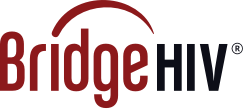
June 27th is National HIV Testing Day (NHTD) in the U.S. Held annually since 1995, the event promotes HIV testing, early diagnosis, and treatment as a critical component of HIV prevention initiatives around the country. Since the early 1980s, HIV/AIDS has claimed the lives of roughly 658,507 people in the United States. Though biomedical and technological innovations have dramatically improved the way we prevent, test for, and manage HIV/AIDS, there are thousands of new infections in the U.S. each year.
While the number of people who are unaware of their HIV infection has steadily decreased, an estimated 1 in 7 still don’t know they are HIV infected so are not accessing care and treatment. The Centers for Disease Control and Prevention (CDC) reported that there are approximately 162,000 people living with HIV who are not aware of their HIV status. Some of the same structural inequalities, like limited access to testing and sexual health services, are likely driving the state level disparities highlighted by the CDC. For example, approximately 46% of all people with HIV at the end of 2015 came from southern states. It is estimated that 86% (960,351) of people were aware of their infection at the end of 2015. In 12 out of 17 Southern states however, the estimated percentage of people aware of their infection was lower than the national estimate. In addition, racial/ethnic disparities are increasing among men who have sex with men (MSM), especially young Black MSM. In a CDC report Black MSM 18-24 reported less condomless anal sex than other racial groups, but had more HIV infections and were less likely to be aware of their infection.
In response, health officials and advocates around the country have been working to promote HIV testing methods that reduce the structural barriers people encounter. Innovations like at–home HIV tests, which are now available for purchase over-the-counter at many pharmacies, may play a key role in this effort as we look forward. Given the anonymity and convenience it has the potential to provide, at-home HIV testing may be especially beneficial for people who experience significant barriers to health care or stigma within their community. Ensuring that anyone with a positive at-home HIV test is supported and connected to care will be essential. In addition, there are rapid HIV tests which are able to diagnose very early (i.e. acute) HIV infection.
You do not have to wait until next June to get tested. For additional HIV prevention resources, call 1-800-CDC-INFO or visit GetTested.cdc.gov to find an HIV/STD testing site near you.
Take the Test. Take Control.



